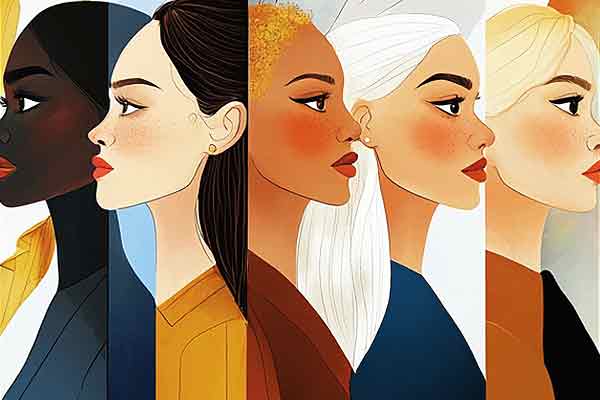Recognizing Women Who Improved Our World

Women’s History Month offers an opportunity to recognize the women whose contributions have shaped our society through resilience, leadership, and collaboration. We’d like to recognize a few of these pioneering women.
These women advanced their fields by working constructively with others—often across lines of difference and disagreement. Their stories remind us that meaningful progress, whether in science, politics, social change, or arts, is rarely achieved in isolation. The strides these women took started with being open to others, embracing bravery, and working toward something bigger than themselves.
Frances Perkins was a highly educated teacher and public servant. While in college, she discovered her passion for social reform, where she was drawn to politics and the women’s suffrage movement. A turning point in her life came when she witnessed the tragic Triangle Shirtwaist Factory fire, where 146 workers died due to locked exits and unsafe conditions. This event deeply influenced her lifelong commitment to worker protection. Perkins went on to hold several influential positions in the New York state government, earning the respect of political leaders through her tireless advocacy for labor reform. She was appointed as the Secretary of Labor under Franklin D. Roosevelt and contributed to the development of the New Deal. Perkins helped bring labor issues to the forefront of national policy as she oversaw the Department of Labor. Her most enduring legacy is her contribution to the Social Security Act of 1935, a landmark achievement that continues to support millions of Americans.
Katherine Johnson, a brilliant American mathematician whose groundbreaking work in orbital mechanics, was vital to the success of the United States’ earliest crewed space missions. Starting her career as a teacher, Johnson later joined a pool of exceptionally talented women at NASA—then NACA—tasked with performing complex mathematical calculations by hand. Her exceptional precision and intellect quickly set her apart, and she became instrumental in calculating trajectories, launch windows, and emergency return paths for missions like John Glenn’s historic orbit around Earth. As NASA transitioned to digital computers, Johnson’s reputation for accuracy helped build trust in the emerging technology. Her remarkable contributions earned her prestigious honors, including the Presidential Medal of Freedom in 2015, the Silver Snoopy Award in 2016, and the NASA Group Achievement Award. Johnson’s legacy continues to inspire generations in science, technology, and beyond.
Bessie Coleman was a fearless trailblazer in aviation history, breaking barriers as the first Black and Native American woman to earn a pilot’s license and receive an international pilot’s license. While working as a manicurist, she was inspired by the thrilling stories of World War I pilots. Determined to fly, she took on a second job as a restaurant manager and saved diligently to pursue her dream. Facing racial and gender discrimination in the United States, Coleman studied French and traveled to Paris in 1920 to attend flight school. After earning her license, she returned to the U.S. and began a daring career as a stunt pilot, performing bold aerial tricks to captivated crowds. With every loop and dive, Bessie Coleman defied expectations and inspired future generations to reach for the skies.
Mira Nadon is a rising star in the world of ballet. She is celebrated for both her remarkable talent and her historic achievements. At 12 years old, her passion for ballet deepened when she encountered the works of George Balanchine during a summer intensive, which eventually lead her to the New York City Ballet (NYCB). Nadon joined the company in 2018 and quickly gained recognition for her commanding stage presence, most notably in her performance as the tall girl in Balanchine’s “Rubies”, which was hailed by The New York Times as the “crowning jewel” of the season and one of the year’s standout performances. After being promoted to soloist in 2022, Nadon reached a historic milestone in 2023 when, at just 21 years old, she became the first Asian American woman to be named a principal dancer at NYCB. Her excellence has also been recognized with prestigious honors, including the Princess Grace Award and the Clive Barnes Award, solidifying her status as a powerful force shaping the future of ballet.
These exemplary women led not by isolating themselves, but by finding ways to collaborate—even with those who didn’t always share their views. Their courage, discipline, and willingness to work with others helped shape a stronger, more thoughtful America. In the spirit of lifelong learning, their stories remind us that progress grows when people come together, listen to one another, and take action with purpose.